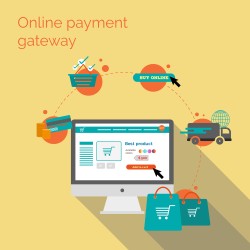.jpeg)
Bus API Integration services
B2C bus services refer to bus transportation services
that cater directly to individual customers or consumers. These services are
designed to transport passengers from one location to another, typically within
a city, region, or country.
B2C bus services are commonly provided by public
transportation agencies, private bus companies, or ride-sharing platforms. They
offer a convenient and affordable mode of transportation for people who do not
own a vehicle, prefer not to drive, or want to reduce their carbon footprint.
Here
are some key features and aspects of B2C bus services:
1.
Routes and Schedules: B2C bus services operate on specific routes
with designated stops. The routes are determined based on demand, population
density, and transportation needs of the area. Bus schedules are designed to
ensure regular and reliable service, allowing passengers to plan their journeys
accordingly.
2.
Ticketing and Fares: Passengers can typically purchase tickets
directly from the bus driver, at ticket counters, or through mobile
apps/websites provided by the bus service provider. Fares can be based on fixed
rates for a particular distance, or they may vary depending on the length of
the journey, time of day, or other factors.
3.
Passenger Amenities: B2C bus services vary in terms of amenities
offered. Some buses provide basic seating and minimal amenities, while others
may offer features like air conditioning, Wi-Fi connectivity, charging ports,
and onboard entertainment systems to enhance passenger comfort.
4.
Safety and Regulations: B2C bus services are subject to safety
regulations and standards set by local transportation authorities. These
regulations cover aspects such as driver qualifications, vehicle maintenance,
passenger capacity, safety equipment, and adherence to traffic rules. Regular
inspections and compliance checks are conducted to ensure passenger safety.
5.
Accessibility: B2C bus services often strive to be accessible to a
wide range of passengers, including individuals with disabilities. This
includes providing wheelchair-accessible buses, ramps or lifts for boarding,
priority seating for those with mobility challenges, and audible or visual
announcements for people with visual or hearing impairments.
6.
Integration with Other Transportation Modes: B2C bus services are
usually part of a larger transportation network that includes other modes such
as trains, trams, or metros. Integration between these modes is crucial to
provide passengers with seamless travel options and improve overall
transportation efficiency.
Overall, B2C bus services play a vital role in urban and regional
transportation systems, providing an efficient and environmentally friendly
mode of public transportation for individuals to commute, travel, and explore
different destinations.






















